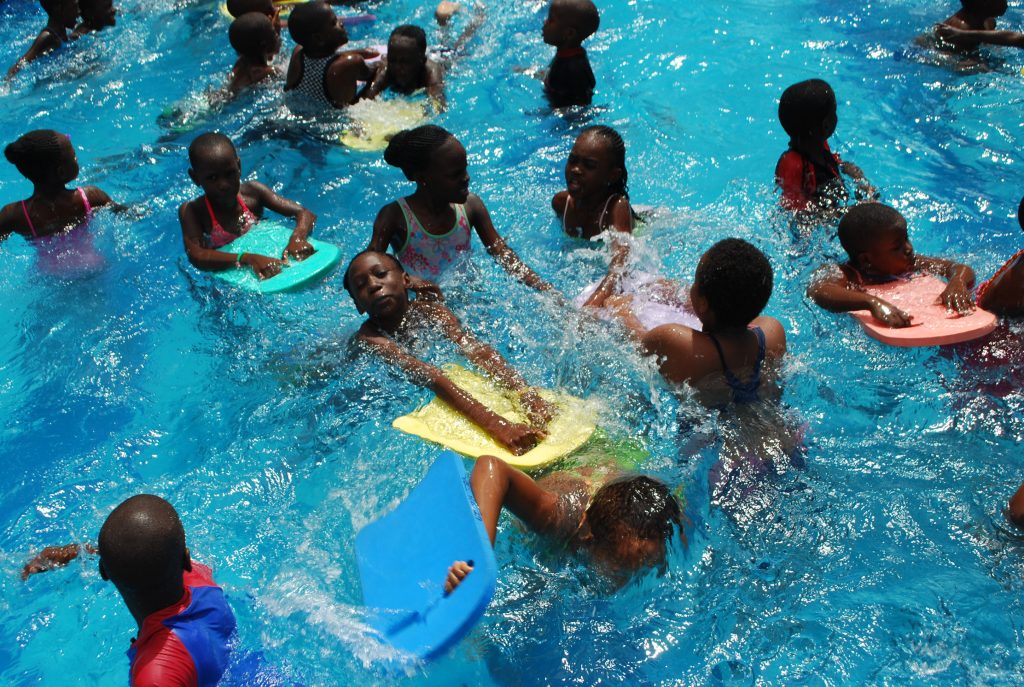When is the ideal time to start swimming lessons for your toddler?
Are you wondering when is the ideal time to start swimming lessons for your toddler? Do you want to make sure your little one is safe and happy in the water? Do you also want to have some fun and laughter along the way? If you answered yes to any of these questions, then this blog post is for you!
Swimming is a great skill that can benefit your child in many ways. It can improve their physical health, mental well-being, social skills, and confidence. It can also be a lot of fun and a great way to bond with your child. But when should you start teaching your toddler how to swim?
The answer is not as simple as you might think. There is no one-size-fits-all age for starting swim lessons. Different children have different abilities, personalities, and preferences when it comes to water. Some may be ready to splash and swim at 1 year old, while others may need more time and encouragement.
However, there are some general guidelines that can help you decide when to enroll your child in swim lessons. Here are some things to consider:
- The American Academy of Pediatrics (AAP) recommends swim lessons as a layer of protection against drowning for children starting at age 1. However, this does not mean that your 1-year-old will learn how to swim right away. Swim lessons for toddlers are more about getting them comfortable and familiar with water, teaching them basic water survival skills, and having fun with their parents or caregivers.
- Swim lessons for toddlers are not a substitute for adult supervision. Drowning can be an insant cause of death among children under 5 years old, and most of these tragedies happen when children are not expected to be in the water. You should always keep an eye on your child whenever they are near water, even if they have had swim lessons.
- Swim lessons for toddlers should be enjoyable and low-pressure. You don't want to force your child to do something they are scared of or not ready for. This can make them hate water and develop a phobia that can last for years. Instead, you want to follow your child's cues and pace, and make them feel safe and supported. You can also look for classes that use games, songs, toys, and other fun activities to make learning fun.
- Swim lessons for toddlers should be appropriate for their age and development. You don't want to enroll your child in a class that is too advanced or too boring for them. You want to find a class that matches their skills, interests, and needs. You can look for classes that are designed specifically for toddlers, or classes that are divided by age groups or levels. You can also ask the instructor about their qualifications, experience, teaching style, and curriculum.
- Swim lessons for toddlers should be consistent and regular. You don't want to enroll your child in a class that meets once a month or only during the holidays. You want to find a class that meets at least once a week, year-round, or as often as possible. This will help your child retain what they learn, build on their skills, and progress faster.
So, what is the ideal age to start swimming lessons for your toddler? The answer is: it depends on your child! But generally speaking, you can start anytime between 1 and 4 years old, as long as you find a class that suits your child's needs and abilities.
If you are still unsure about when to start swim lessons for your toddler, you can always consult with your pediatrician or a swim instructor. They can give you more advice and guidance based on your child's health, development, and readiness.
Swimming is a wonderful activity that can bring joy and benefits to your child's life. Don't wait too long to introduce them to the water! Start swim lessons as soon as you feel comfortable and confident that your child will enjoy them.
And remember: have fun! Swimming is not only a skill but also an adventure. Make it a positive and memorable experience for both you and your child!

